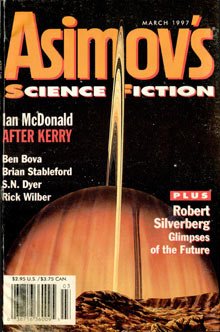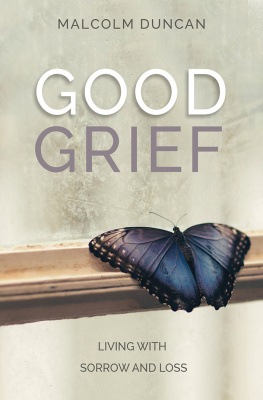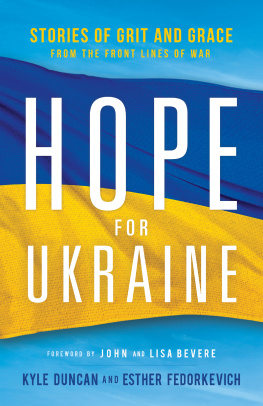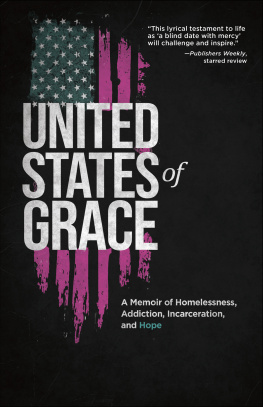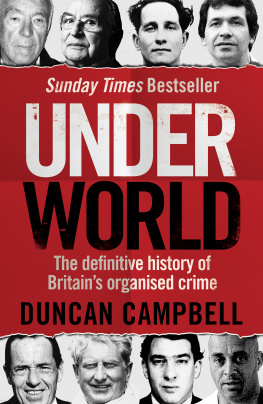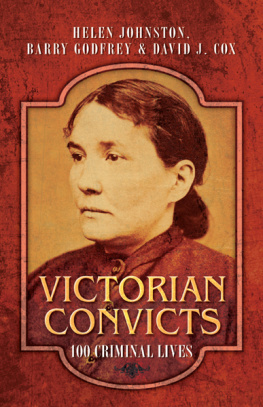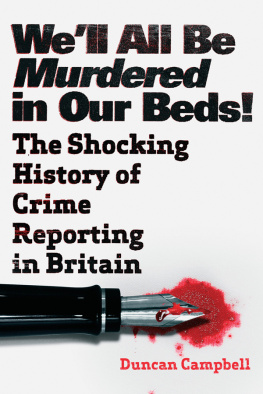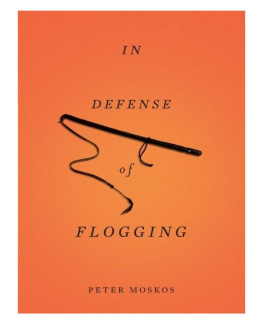Thank you for buying this ebook, published by NYU Press.
Sign up for our e-newsletters to receive information about forthcoming books, special discounts, and more!
Sign Up!
About NYU Press
A publisher of original scholarship since its founding in 1916, New York University Press Produces more than 100 new books each year, with a backlist of 3,000 titles in print. Working across the humanities and social sciences, NYU Press has award-winning lists in sociology, law, cultural and American studies, religion, American history, anthropology, politics, criminology, media and communication, literary studies, and psychology.
Romantic Outlaws, Beloved Prisons
Romantic Outlaws, Beloved Prisons
The Unconscious Meanings
of
Crime and Punishment
Martha Grace Duncan
NEW YORK UNIVERSITY PRESS
New York and London
1996 by New York University
ALL RIGHTS RESERVED
Library of Congress Cataloging-in-Publication Data
Duncan, Martha Grace, 1945
Romantic outlaws, beloved prisons : the unconscious meanings of
crime and punishment / Martha Grace Duncan.
p. cm.
Includes bibliographical references and index.
ISBN 0-8147-1880-9 (alk. paper)
1. Prison psychology. 2. Criminal psychology. 3. Prisons in
literature. 4. Criminals in literature. I. Title.
HV6089.D84 1996
364.3dc20 96-10124
CIP
Sections of Part One were originally published, in different form, in the
California Law Review, 1988 by California Law Review, Inc. Reprinted
from California Law Review, Vol. 76, No. 6, Dec. 1988, pp.
120148, by permission.
Sections of Part Two were originally published, in different form, in
Volume 1991 of the University of Illinois Law Review.
Sections of Part Three were originally published, in different form,
in 68 Tulane Law Review, 1994, the Tulane Law Review Association.
All rights reserved.
New York University Press books are printed on acid-free paper,
and their binding materials are chosen for strength and durability.
Manufactured in the United States of America
10 9 8 7 6 5 4 3 2 1
This book is dedicated to the memory of
DONALD W. FYR.
For without friends, no one would choose to live,
though he had all other goods.
ARISTOTLE
Contents
PART ONE
Cradled on the Sea: Positive Images of Prison and
Theories of Punishment
1. A Thousand Leagues Above:
Prison As a Refuge from the Prosaic
2. Cradled on the Sea:
Prison As a Mother Who Provides and Protects
3. To Die and Become:
Prison As a Matrix of Spiritual Rebirth
4. Flowers Are Flowers:
Prison As a Place Like Any Other
PART TWO
A Strange Liking: Our Admiration for Criminals
7. Reluctant Admiration:
The Forms of Our Conflict over Criminals
8. Rationalized Admiration:
Overt Delight in Camouflaged Criminals
9. Repressed Admiration:
Loathing As a Vicissitude of Attraction to Criminals
PART THREE
In Slime and Darkness: The Metaphor of Filth in
Criminal Justice
10. Eject Him Tainted Now:
The Criminal As Filth in Western Culture
11. Projecting an Excrementitious Mass:
The Metaphor of Filth in the History of Botany Bay
12. Stirring the Odorous Pile: Vicissitudes of the
Metaphor in Britain and the United States
CONCLUSION
The Romanticization of Criminals and the Defense against Despair
Preface and Acknowledgments
The web of our life is of a mingled yarn, good and ill together.
Shakespeare
This is a book about paradoxes and mingled yarnsabout the bright sides of dark events, the silver linings of sable clouds. The book portrays law-abiding citizens who harbor a strange liking for criminal deeds, and criminals who find an extraordinary beauty in their prison yards. Thus, the book describes a nonutopian world in which criminals and noncriminalswhile injuring each other in ways plain for all to seenonetheless live together in a symbiotic as well as an adversarial relationship, needing each other, serving each other, living for as well as off each other, enriching each others lives in profound and surprising ways.
This book has its roots in my doctoral training in the Political Science Department of Columbia University. There, in the 1970s, I became fascinated by individuals and groups who reject the legitimacy of the state and oppose its right to govern their lives. In papers with such titles as Consciousness versus Spontaneity and Utopian Fury, I explored the socioeconomic and political matrices of Spanish anarchism, Brazilian peasant movements, and the Colombian violencia. Throughout these endeavors, I benefited from the wise counsel of four scholars: Professors Douglas Chalmers, Mark Kesselman, Arnold Rogow, and Allan Silver.
During my years in graduate school, my interest gradually shifted from the objective conditions fostering radical and revolutionary movements to the idiosyncratic meanings of the movements for the participants themselves. In my search for better tools to investigate these subjective meanings, I decided, upon completion of my doctorate, to seek training as a research candidate at the Psychoanalytic Institute at the State University of New York, Downstate School of Medicine (now the NYU Psychoanalytic Institute at New York University Medical Center). Through a training analysis, classes, and clinical experience, I studied the complex vicissitudes of the human mind and the genesis of mental associations in childhood. From the beginning of my psychoanalytic training until the present time, I have received sustaining encouragement from the faculty of the Psychoanalytic Institute. I especially wish to thank my advisers, Drs. Marvin Nierenberg and Martin Silverman, and the former director of the Institute, Dr. Austin Silber.
In the fall of 1980, my ongoing preoccupation with issues centering on authority and interpretation led me to matriculate as a J.D. candidate at Yale Law School. Not surprisingly, I soon found myself drawn to Criminal Law as the arena where the state and the individual confront each other in the most dramatic fashion. It was my good fortune to study Criminal Law with Professor Abraham Goldstein, who fostered wonderful class discussions ranging far beyond the elements of crimes. Professor (now Dean) Anthony Kronman encouraged me to bring my previous training to bear on the law and gave generously of his time to help me obtain a position as a law professor.
In addition to these long-term intellectual debts, I am obligated in more immediate ways to the Emory University School of Law and its Dean, Howard O. Hunter, for summer research grants and a sabbatical leave to work on this project. I am also grateful to the following colleagues at Emory University, who took time from their own work to comment on previous drafts of this book: Professors David Bederman, Harriet King, Andrew Kull, Marc Miller, John Sitter, Gary Smith, and John Witte, Jr. I owe a word of special appreciation to Professors Thomas Arthur and Colleen Murphy, who not only read early drafts, but also served as my first audience for many of the ideas and much of the language in the book. My gratitude goes as well to Professor Sheridan Baker; the Reverend Richard Duncan; Professor Michael Hoffheimer; Professor James Kincaid; Richard Levin, Esquire; Professor Norval Morris; Dr. Ralph Roughton; C. G. Schoenfeld, Esquire; Professor J. Allen Smith; and Professor Walter O. Weyrauchall of whom gave me the benefit of their thoughtful criticism.


